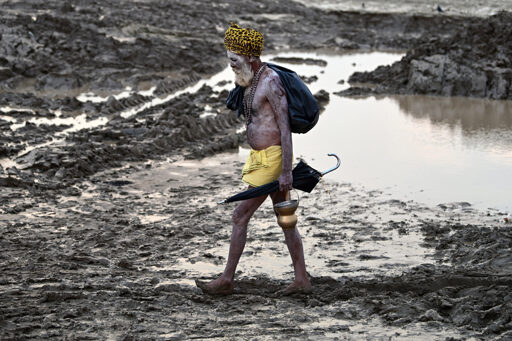After agreeing an interim set of rules for how it will operate, the global Fund for Responding to Loss and Damage (FRLD) will next month launch a call for proposals on how to address and repair the destruction caused by climate change.
At a meeting in the Philippines this week, the FRLD’s board decided on how the fund will operate next year, before permanent rules are agreed. In this interim period, it will have at least $250 million to spend and, at November’s COP30 climate summit in Belém, will ask for project proposals it could fund.
The board’s co-chair, South African climate negotiator Richard Sherman, said he expects to adopt the first set of proposals within six months. The fledgling fund – which was set up under the UN climate process – will then ask wealthy governments for more money, through a replenishment process, in 2027.
Elizabeth Thompson, an FRLD board member from the government of Barbados, said she was “happy” to see the fund’s interim rules adopted and hopes they will “spur innovative approaches” to allow countries “access to resources at scale – and that it will be a source of real support against rapid and slow onset climate events”.
 Oct 9, 2025Clean Energy Frontier
Oct 9, 2025Clean Energy Frontier
AI and satellite data help researchers map world’s transition minerals rush
Filling “mind-boggling” gaps in mining data will make it easier to track the environmental impact of surging global appetite for critical minerals, experts sayRead more Oct 8, 2025Politics
Oct 8, 2025Politics
Panama environment minister backs calls for reform of UN climate process
Panama’s environment minister told Climate Home that decision-making rules at the UN climate talks should be reformed to deliver faster changes.Read more Oct 8, 2025Comment
Oct 8, 2025Comment
Landmark ICJ climate ruling must be turned into concrete action on shipping
This month’s meeting of the International Maritime Organization is a critical test of whether governments are heeding July’s groundbreaking rulingRead more
“That cannot happen however,” she warned, “unless the fund is filled, as the need and scale of the crisis far outstrip the monies in the fund to date.”
Citing the recent International Court of Justice advisory opinion on climate change, she said that “the countries responsible for the climate crisis need to fund the cost of loss and damage suffered by affected countries – this is now an urgent and legal matter and countries need to accept their responsibility.”
The Independent High-Level Expert Group on Climate Finance has estimated that, by 2030, developing countries could require $200 billion-$400 billion a year to address loss and damage caused by storms, droughts, flooding, extreme heat and rising seas made worse by climate change.
Since the fund was formally agreed two years ago, developed countries have pledged $788 million, signed commitments for over $560 million, and actually transferred less than $400 million of that total.
‘Fill the fund’ campaign
Harjeet Singh, founding director of India’s Satat Sampada Climate Foundation, told a press conference after the FRLD board meeting ended on Thursday that this amount was “absolutely insignificant compared to what is needed by communities and countries”, adding that civil society’s “Fill the Fund” campaign would push developed countries to make new pledges.
Italy is responsible for the biggest chunk of the gap between pledges and cash transfers. At COP28 two years ago, Prime Minister Giorgia Meloni promised €100 million ($115 million) to the fund but has yet to convert the pledge into a formal agreement that sets out how the money will be provided.
“Looking at official documents, the loss and damage fund is not mentioned anywhere,” Caterina Molinari, policy advisor on finance at Italian think-tank Ecco, told Climate Home News. “This is not some spending that Italy is planning to make,” she said, adding “they need to put their money where their mouth is”.
Comment: The ICJ climate ruling has major implications for the loss and damage fund
At this week’s board meeting, government representatives from developed and developing countries were unable to agree on a strategy to mobilise additional resources due to divisions on the role of capital markets and innovative sources of finance – like taxes on first-class plane tickets.
Other areas of disagreement – according to a draft document seen by Climate Home News – include how much funding should be loans versus grants, and how regular fundraising rounds should be. The board now aims to decide this at its board meeting in October 2026.
The post Loss and damage fund will launch call for proposals at COP30 appeared first on Climate Home News.
From Climate Home News via this RSS feed

